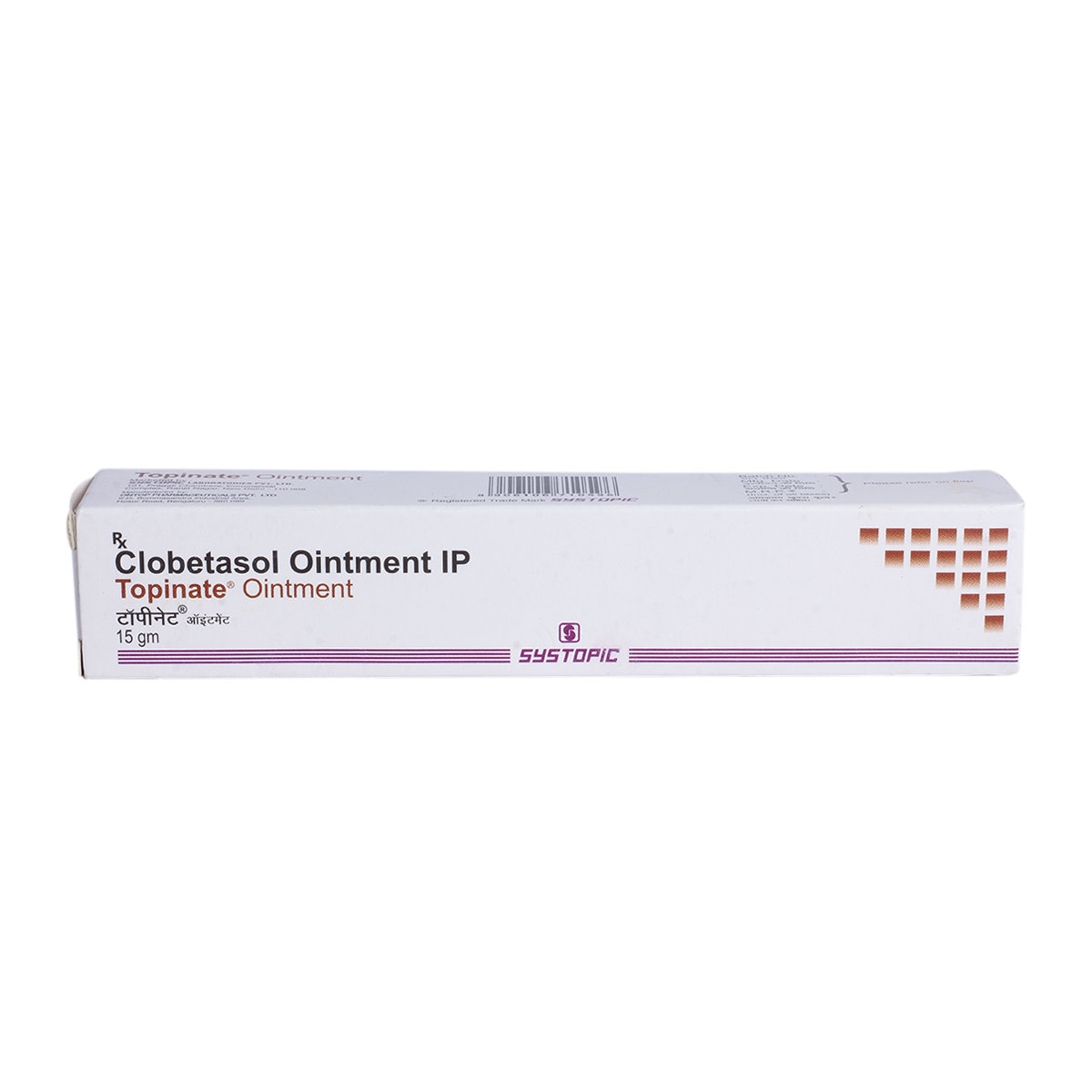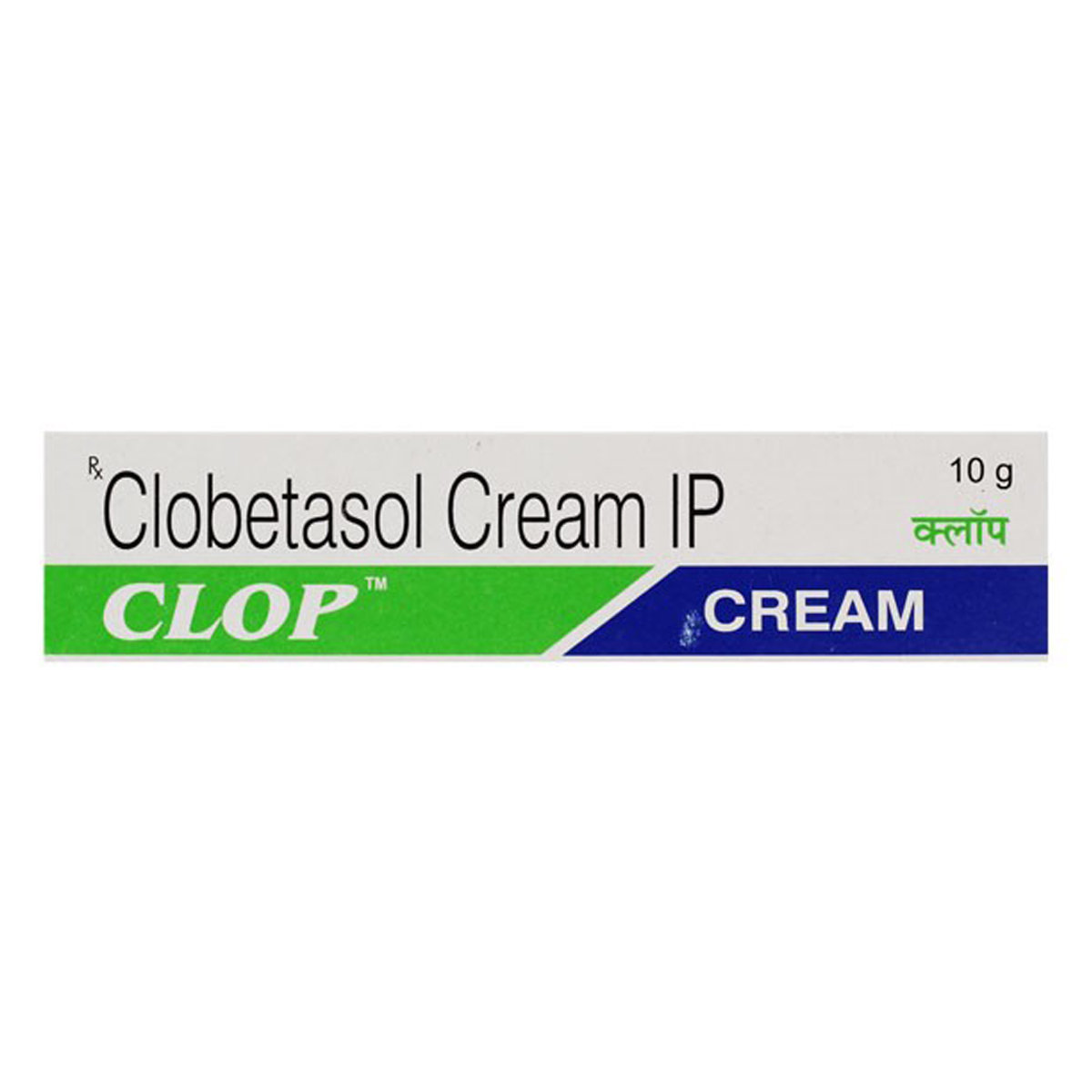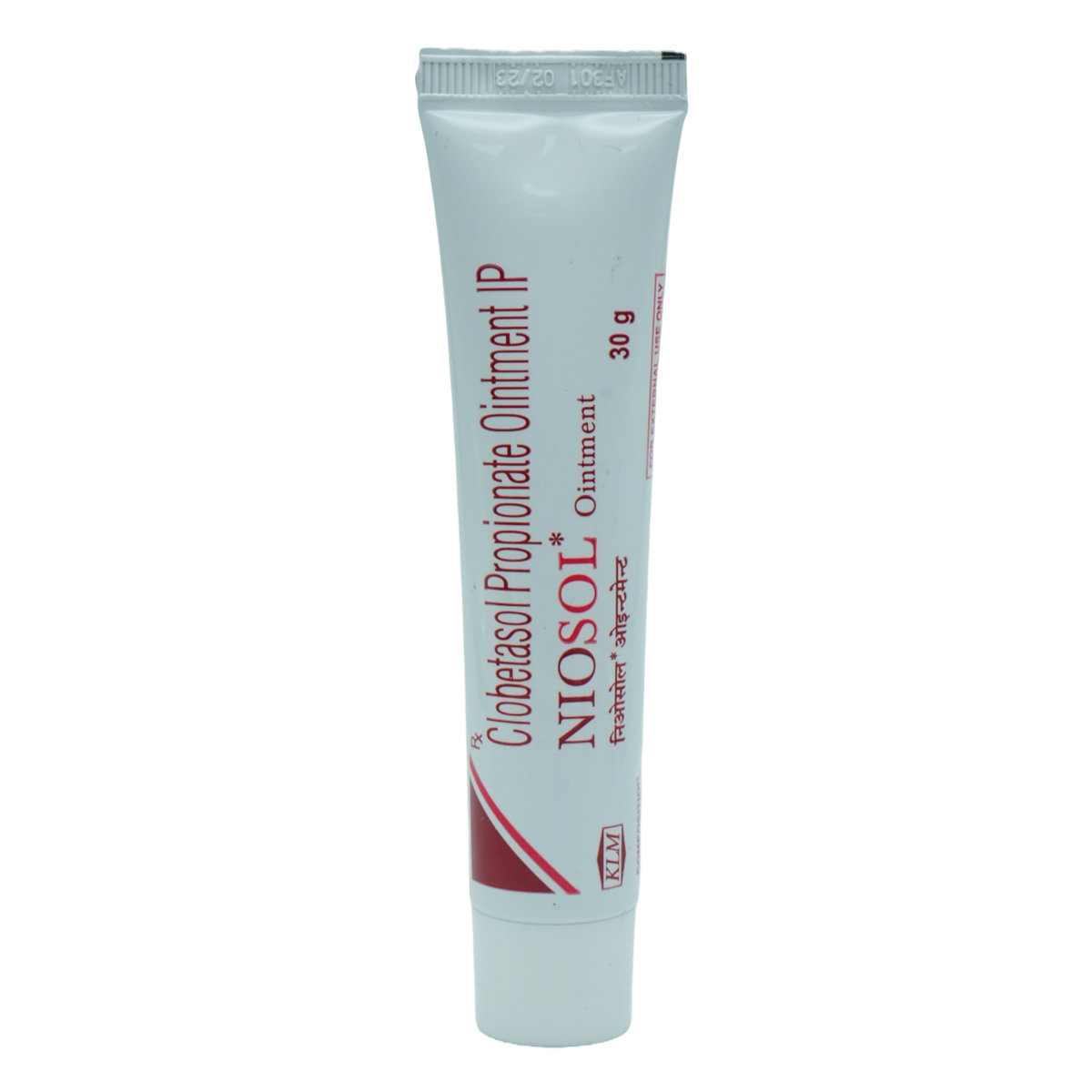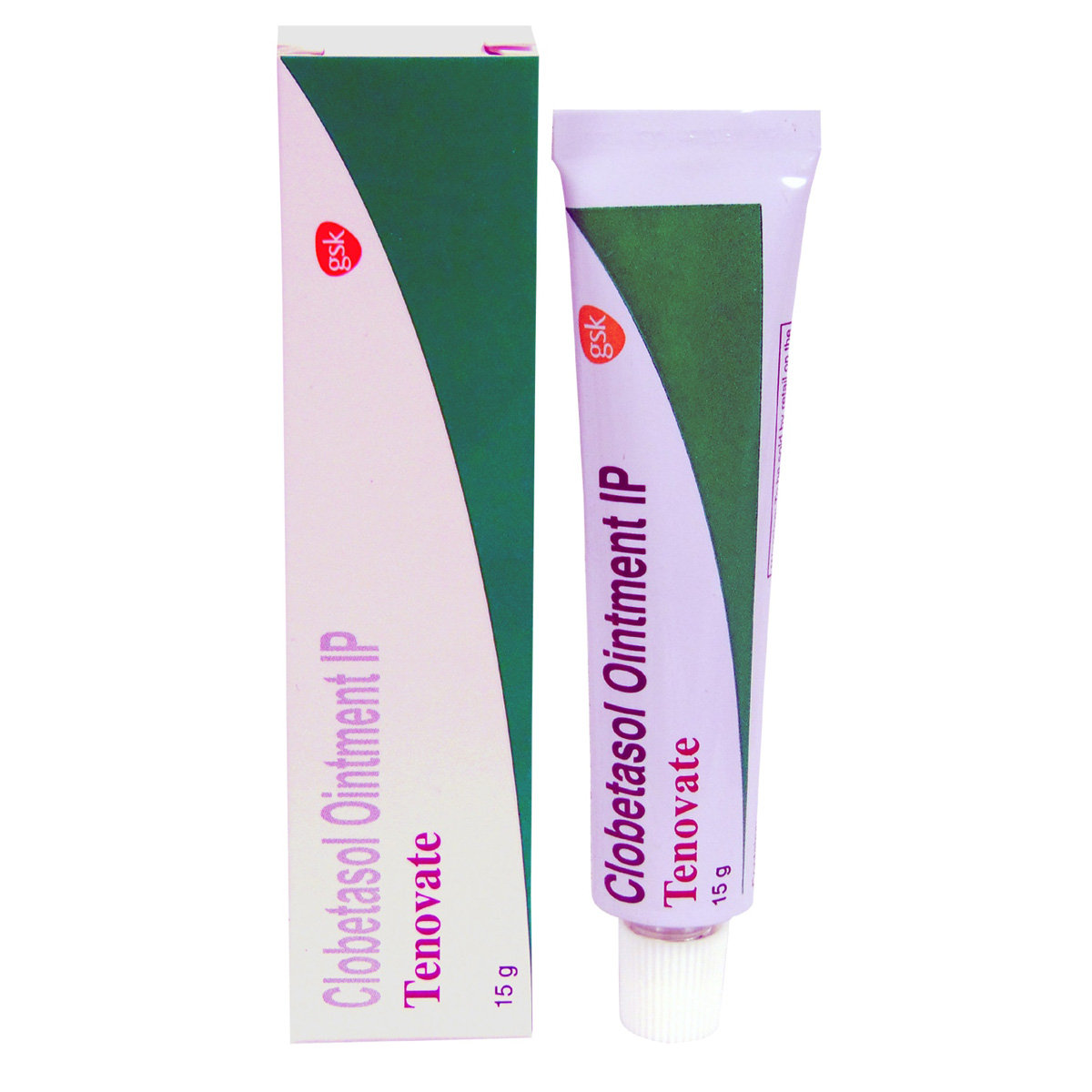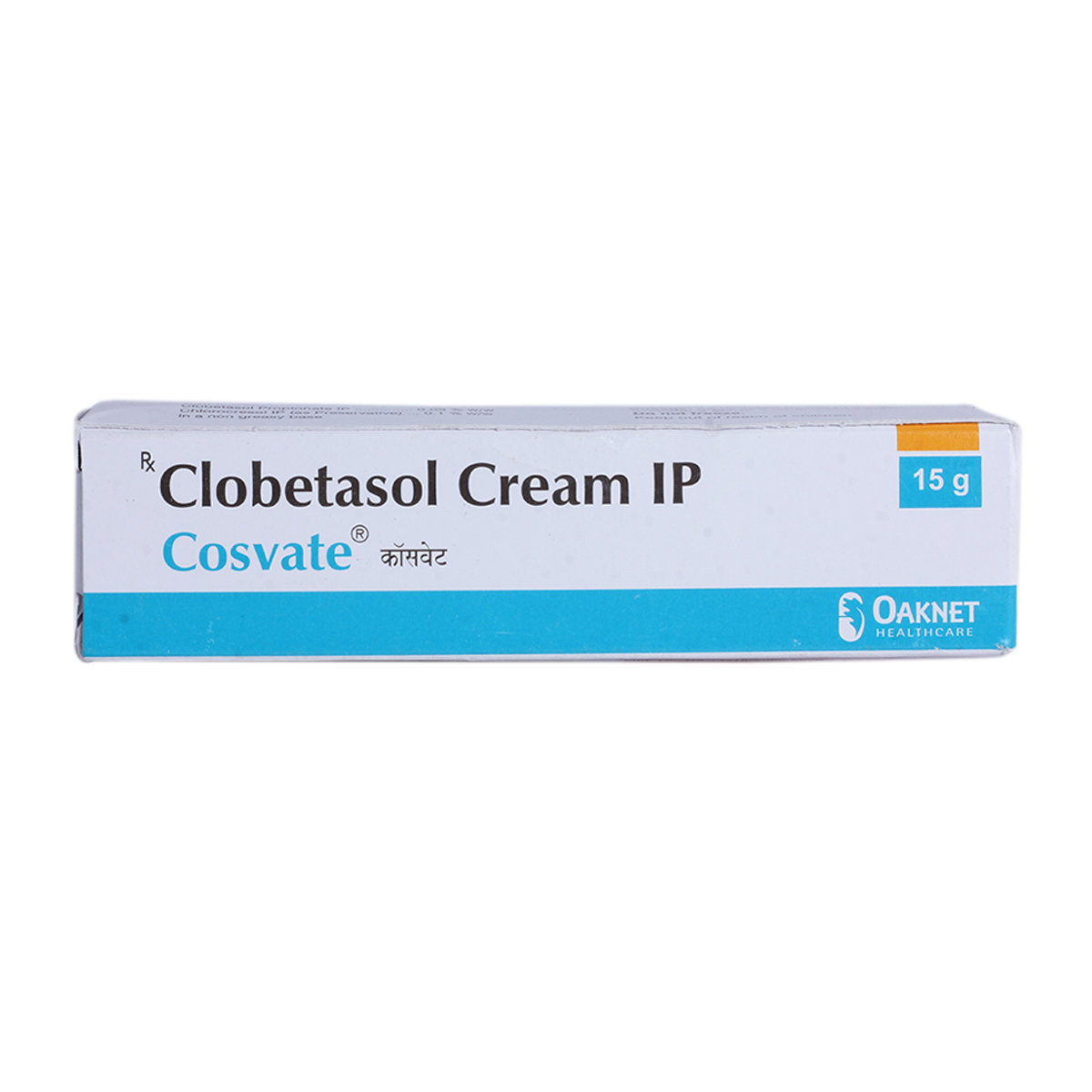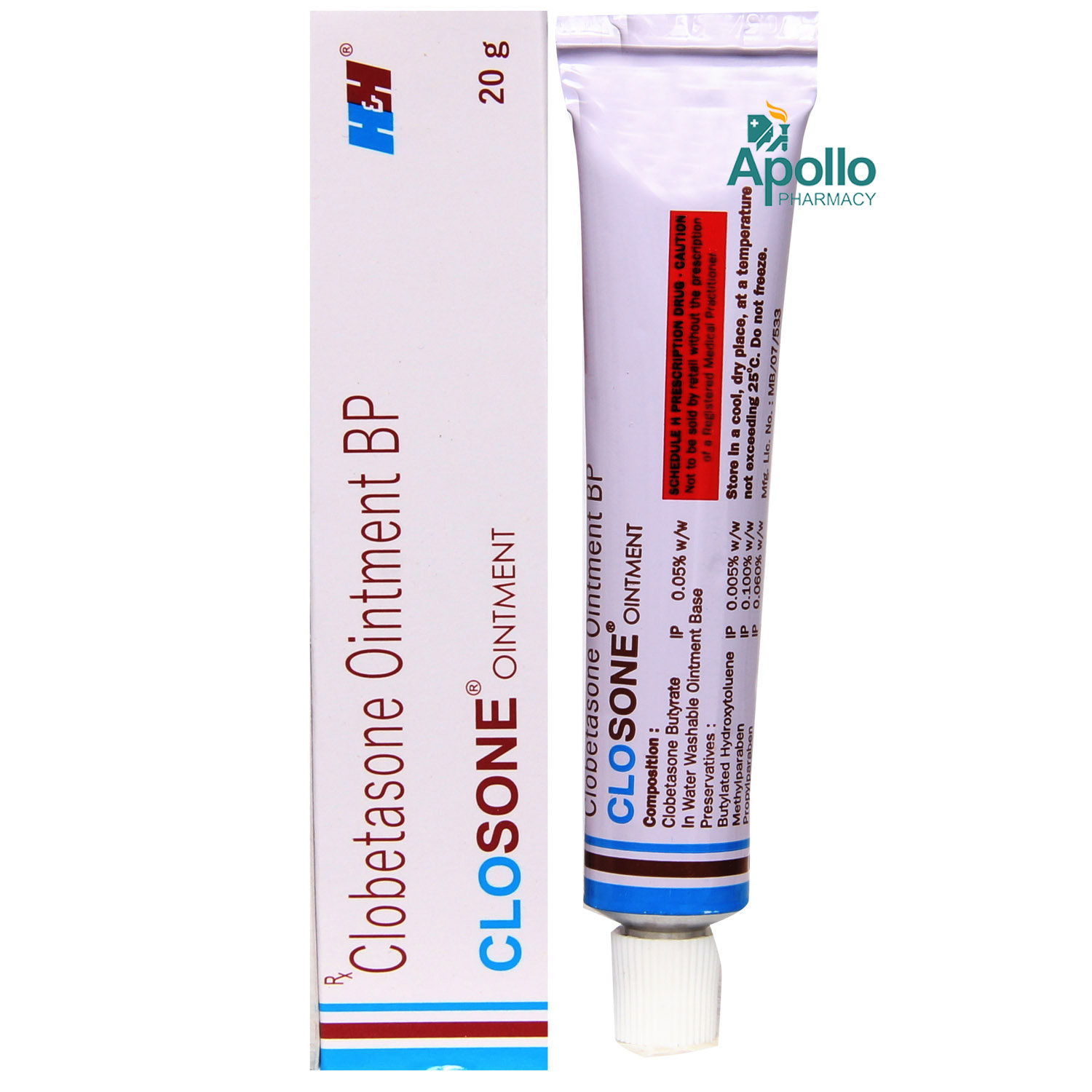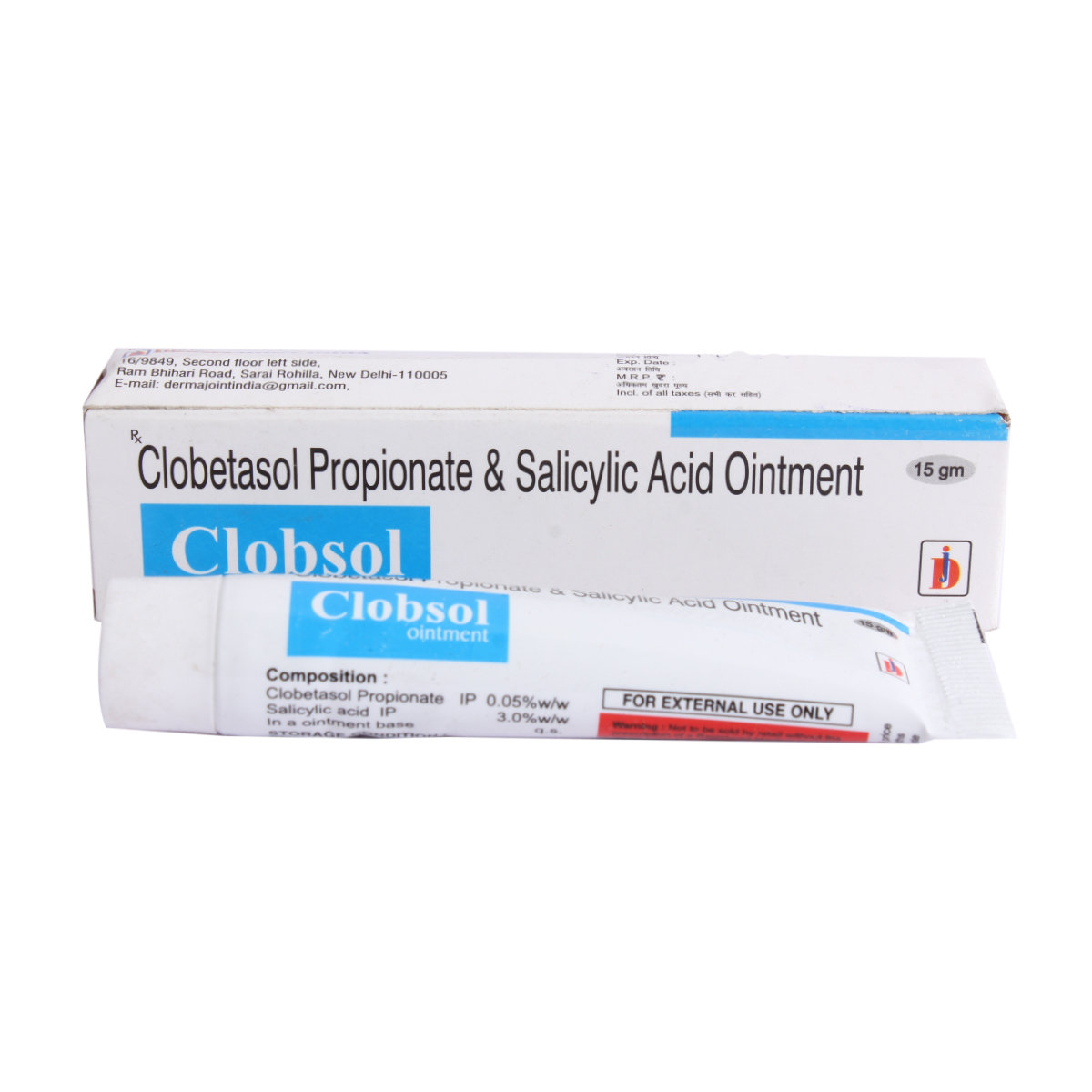- Home
- Clonate Ointment
Clonate Ointment Substitute
Clonate Ointment Substitute
Medicine Composition:
CLOBETASOL-0.05%W/WAll Substitutes & Brand Comparisons
RX
Praisvate Ointment 50 gm
Praise Pharma
₹126.5
(₹2.28/ 1gm)
67% CHEAPERRX
Bariderm Ointment 20 gm
Organic Pharmaceuticals Pvt Ltd
₹63.5
(₹2.86/ 1gm)
59% CHEAPERRX
Clobsave Ointment 30 gm
Rockmed Pharma Pvt Ltd
₹126.5
(₹3.8/ 1gm)
45% CHEAPERRX
Clobecort Ointment 30 gm
Human Pharmaceuticals
₹131
(₹3.93/ 1gm)
43% CHEAPERRX
Topinate Ointment 15 gm
Systopic Laboratories Pvt Ltd
₹71
(₹4.26/ 1gm)
39% CHEAPERRX
Clop Ointment 10 gm
Liva Health Care Ltd
₹63
(₹5.67/ 1gm)
18% CHEAPERRX
Clomic Ointment 30 gm
East West Pharma India Pvt Ltd
₹192
(₹5.76/ 1gm)
17% CHEAPERRX
Niosol Ointment 30 gm
Klm Laboratories Pvt Ltd
₹196.5
(₹5.9/ 1gm)
15% CHEAPERRX
Tenovate Ointment 15 gm
GlaxoSmithKline Pharmaceuticals Ltd
₹112.5
(₹6.75/ 1gm)
3% CHEAPERRX
Cosvate Cream 15 gm
Oaknet Healthcare Pvt Ltd
₹115
(₹6.9/ 1gm)
1% CHEAPERRX
Clonate Ointment 30 gm
Hegde & Hegde Pharmaceutica Llp
₹233
(₹6.99/ 1gm)
RX
Clomic 0.05% Ointment 20 gm
East West Pharma India Pvt Ltd
₹166.5
(₹7.5/ 1gm)
7% COSTLIERRX
Closone Ontment 20 gm
Hegde & Hegde Pharmaceutica Llp
₹167.5
(₹7.54/ 1gm)
7% COSTLIERRX
Clonate Ointment 20 gm
Hegde & Hegde Pharmaceutica Llp
₹178
(₹8.01/ 1gm)
14% COSTLIERRX
Clobsol Ointment 15 gm
Dermajoint India
₹186.5
(₹11.19/ 1gm)
60% COSTLIER

When Should You Consider Switching from Clonate Ointment?
Patients may explore substitutes in the following scenarios:
- High monthly cost of Clonate Ointment
- Non-availability in local pharmacies
- Generic recommendation by a doctor
- Side effects or better tolerability with alternatives
What to Know Before Switching
Before you switch from Clonate Ointment to another medicine, here are some important points to keep in mind:
Same salt, different brands:
Most substitutes contain the same active ingredient - CLOBETASOL-0.05%W/W, but the fillers, coating, or manufacturing quality may vary slightly.
Consult your doctor first:
Even if the salt is the same, your doctor can confirm if the substitute is right for your condition, dosage, and health history.
Watch out for allergies or reactions:
Some people may react differently to certain brands due to inactive ingredients. If you notice any side effects, inform your doctor immediately.
Price ≠ effectiveness:
A lower-priced substitute doesn't mean it's less effective. Many generic medicines work just as well as branded ones.
Check the dosage form and strength:
Always match the substitute’s strength (e.g., 5mg, 10mg) and form (tablet, capsule, syrup) with what your doctor prescribed.
Uses
Clonate Ointment is used in the treatment of various inflammatory and allergic skin conditions. The detailed uses of Clonate Ointment are as follows:
- Treatment of psoriasis: Reduces redness, scaling, and itching caused by plaque psoriasis.
- Management of eczema: Reduces inflammation, dryness, and itching in atopic and contact dermatitis.
- Relief from lichen planus: Reduces swelling and irritation in inflammatory skin disorders like lichen planus.
- Treatment of seborrheic dermatitis: Reduce flaking and itching on the scalp and other affected areas.
- Management of discoid lupus erythematosus: Controls the dermal symptoms of this autoimmune condition by reducing inflammation.
- Treatment of allergic reactions: Provides relief from redness, swelling, and inflammation caused by allergic skin reactions.
Medicinal Benefits
- Clonate Ointment is a corticosteroid, which helps reduce inflammation in the body.
- It decreases swelling, redness, and itching associated with skin disorders.
- Clonate Ointment inhibits chemical messengers that trigger inflammatory responses.
- It is effective in treating various skin conditions, such as eczema, psoriasis, and dermatitis.
- Clonate Ointment provides relief from discomfort caused by irritation and inflammation.
FAQs
The substitutes of Clonate Ointment contain the same active salt(s) - CLOBETASOL-0.05%W/W. However, they may differ in price, manufacturing quality, and inactive ingredients. Speak to your doctor to find a suitable option.
Switching to a generic substitute medicine in the place of Clonate Ointment is often possible if it has the same salt, strength, and dosage form. But always check with your doctor before making any changes to your medication.
Generics versions of Clonate Ointment are typically more affordable because they don’t include the original brand's research, development, and marketing costs. They contain the same active ingredient and are approved for safety and effectiveness.
Most people don’t notice any difference. However, some may react to different fillers or coatings. If you notice any unusual symptoms after switching, consult your doctor.
Make sure the new medicine has the same active salt, strength, dosage form. Always confirm the change with your doctor or pharmacist.
Substitutes of Clonate Ointment meet the same safety and efficacy standards as Clonate Ointment, but small differences in absorption or formulation can exist. A doctor can help you choose the right one for your needs.
Yes. Substitutes of Clonate Ointment may vary in color, size, or shape due to differences in manufacturing and branding, but this does not affect how they work.
Yes, it’s generally safe to switch between multiple substitutes of Clonate Ointment if they have the same salt and strength. However, always inform your doctor so they can monitor how your body responds.
Yes, many people safely use substitutes of Clonate Ointment for long-term treatment. Just ensure it’s done under medical supervision.
If your symptoms stay under control or lab results remain stable, the substitute for Clonate Ointment is likely working well. Regular follow-ups with your doctor are important.
Absolutely. Even with the same salt, small differences can affect how your body responds when switching from Clonate Ointment to its substitute. Always consult your doctor before switching.
Clonate Ointment is indicated for the relief of inflammation, redness, swelling and itching associated with corticosteroid-responsive skin conditions.
Clonate Ointment comprises Clobetasol, an active corticosteroid with anti-inflammatory properties on the skin. It reduces swelling, redness, and itching by inhibiting the production of certain chemical messengers in the body that cause inflammation. Thus, Clonate Ointment aids in treating skin conditions such as psoriasis, eczema, lichen planus, and discoid lupus erythematosus.
Clonate Ointment may stimulate hair growth. However, it should be used only when advised by a doctor.
Clonate Ointment is not recommended for the treatment of burns. It should also be not used on broken skin or open wounds.
Clonate Ointment may increase blood sugar levels. Consult your doctor immediately if you experience any abnormal signs or symptoms while using Clonate Ointment.
Using too much of Clonate Ointment or using it for a long time may increase your risk of having adrenal gland problems.
Yes, you are eligible to take vaccines, but tell the doctor or nurse that you are using clobetasol so they can give the vaccine in an untreated area of skin.
Clonate Ointment can bleach and lighten skin. However, using Clonate Ointment for skin lightening is not clinically established. So, it should be used only when prescribed by a doctor.
No, Clonate Ointment cannot be used for fungal infections as it is not an antifungal agent.
Clonate Ointment should be used for a long time only if prescribed by the doctor. This medicine is usually prescribed for the short term, except for certain chronic inflammatory conditions.
Severe skin reactions are rare with Clonate Ointment. They might occur in people who are hypersensitive to Clonate Ointment. Consult the doctor if you have itching, rash, or swelling.
Clonate Ointment should not be used on the face unless advised otherwise by the doctor.
Clonate Ointment should not be used in children under 12 years of age without a doctor's advice. Please consult the doctor if you have any concerns.
Clonate Ointment is recommended for use in infections as it might worsen the condition. It is used to treat skin conditions like psoriasis, eczema, lichen planus, and discoid lupus erythematosus.
Do not discontinue Clonate Ointment without consulting your doctor. To treat your condition effectively, keep using Clonate Ointment for the prescribed duration.
Clonate Ointment may cause side effects like a burning sensation, stinging sensation, itching, dryness, or redness at the application site. Consult the doctor if the side effects persist or worsen.
Buy best Dermatology products by
Glenmark Pharmaceuticals Ltd
Canixa Life Sciences Pvt Ltd
Klm Laboratories Pvt Ltd
Sun Pharmaceutical Industries Ltd
Cipla Ltd
Intas Pharmaceuticals Ltd
Abbott India Ltd
Ajanta Pharma Ltd
East West Pharma India Pvt Ltd
Dr Reddy's Laboratories Ltd
Brinton Pharmaceuticals Ltd
Leeford Healthcare Ltd
Alkem Laboratories Ltd
Skinocean Pharmaceuticals
Amwill Healthcare Pvt Ltd
Atopic laboratories Pvt Ltd
Hegde & Hegde Pharmaceutica Llp
Torrent Pharmaceuticals Ltd
Palsons Derma Pvt Ltd
Dermacia Healthcare
Oaknet Healthcare Pvt Ltd
Ipca Laboratories Ltd
Micro Labs Ltd
Med Manor Organics Pvt Ltd
Yaher Pharma
Dermocare Laboratories Gujarat Llp
Apex Laboratories Pvt Ltd
Talent India Pvt Ltd
Kivi Labs Ltd
Mankind Pharma Pvt Ltd
Systopic Laboratories Pvt Ltd
Menarini India Pvt Ltd
Nemus Pharmaceuticals Pvt Ltd
Ethinext Pharma
Zydus Cadila
Regaliz Medicare Ltd
Inex Medicaments Pvt Ltd
Mohrish Pharmaceuticals Pvt Ltd
Hbc Dermiza Healthcare Pvt Ltd
Lupin Ltd
Mrhm Pharma Pvt Ltd
Zydus Healthcare Ltd
Eskon Pharma
GlaxoSmithKline Pharmaceuticals Ltd
La Pristine Bioceuticals Pvt Ltd
Praise Pharma
Wallace Pharmaceuticals Pvt Ltd
Newtrimed Healthcare Pvt Ltd
Biocute Life Care
Glowderma Lab Pvt Ltd
Macleods Pharmaceuticals Ltd
Sol Derma Pharmaceuticals Pvt Ltd
Aurel Biolife
Ethicare Remedies Pvt Ltd
Galcare Pharmaceuticals Pvt Ltd
Kaizen Drugs Pvt Ltd
Percos India Pvt Ltd
Rockmed Pharma Pvt Ltd
Elder Pharmaceuticals Ltd
Rely On Pharmaceuticals
Wockhardt Ltd
Zee Laboratories Ltd
Karlin Pharmaceuticals & Exports Pvt Ltd
Alniche Life Sciences Pvt Ltd
La Med Healthcare Pvt Ltd
Prism Life Sciences Ltd
Yap Bioceuticals
Connote Healthcare
P and P Dermaceuticals Pvt Ltd
Adonis Laboratories Pvt Ltd
Indiabulls Pharmaceuticals Pvt Ltd
Lyra Laboratories Pvt Ltd
Akumentis Healthcare Ltd
Albatross Healthcare Pvt Ltd
Apple Therapeutics Pvt Ltd
Arka Vital Science Pvt Ltd
Gary Pharmaceuticals Pvt Ltd
Rhine Biogenics Pvt Ltd
Yash Pharma Laboratories Pvt Ltd
Dermajoint India
Leogard Pharmaceuticals Pvt Ltd
Dermarex HealthCare India Pvt Ltd
Iceberg Health Care Pvt Ltd
Capital Pharma
Eumedica Pharamceuticals
FDC Ltd
Glasier Wellness Inc
Grace Derma Healthcare Pvt Ltd
Oziel Pharmaceuticals Pvt Ltd
Salve Pharmaceuticals Pvt Ltd
West Coast Pharmaceuticals Pvt Ltd
Entod Pharmaceuticals Ltd
Jenburkt Pharmaceuticals Ltd
Medcure Organics Pvt Ltd
Olcare Laboratories Pvt Ltd
Anhox Healthcare Pvt Ltd
Bioswizz Pharmaceuticals Ltd
Indchemie Health Specialities Pvt Ltd
Omniceutics Healthcare Pvt Ltd
Skinska Pharmaceutica Pvt Ltd
BODY CREAM
Body Lotion
Soap
Face Cream
Shampoo
Sun Screen
Face Gel
Face Wash
HAIR SOLUTION
BODY GEL
Face Serum
Hair Lotion
Hair Serum
Dusting Powder
ANTISEPTIC
Body Wash
Face Lotion
FACE CLEANSER
Body Spray
Foot Cream
Conditioner
Eye Cream
Eye Gel
Cleanser
Hair Cream
Hair Gel
Hair Spray
FUNGAL INFECTION
Hair Oil
Sanitizer
Specialty Supplements
Face Mask
Skin Ointment
Lip Balm
Capsule
Eye Serum
Intimate Wash
Hand Cream
Facial Spray
Face Toner
Hand Wash
SPECIALITY SUPPLEMENT
Tablet
BABY SUNSCREEN
Body Butter
Body Scrub
EYE SOLUTION
FACIAL WIPE
Gargle
Hair Color
Hair Mask
Hair Tonic
Intimate Spray
Lip Serum
VITAMIN D


